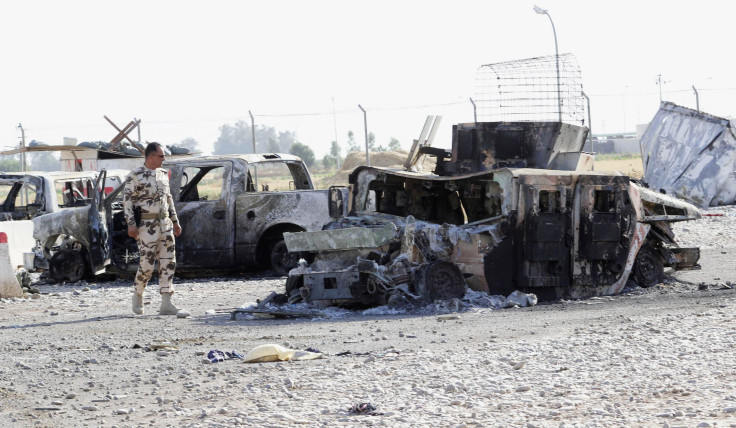Chinese Citizens And Oil Investment In Jeopardy In ISIS-Led Iraq Takeover

Chinese citizens employed at a power plant construction site in northern Iraq are struggling to exit the increasingly volatile country as jihadist violence continues to spread. While dozens of Chinese workers were able to relocate to the marginally more stable Baghdad, 1,200 people are still waiting to be evacuated.
China’s state-run China Daily confirmed that just over 50 employees at the China Machinery Engineering Corp. (CMEC) had arrived in Baghdad via helicopter from the northern city of Samarra, where the plant is located, on Wednesday night. Militants from the jihadist terror group ISIS — Islamic State of Iraq and Syria -- have infiltrated several Iraqi towns north and west of Baghdad in the past month, including Samarra on June 5. Initially, CMEC notified workers of plans to have employees collectively leave for China from Baghdad on Friday. A day after that deadline, a majority of CMEC’s workers were still stuck on site.
Various reports estimate that an additional 1,200 CMEC workers remain stranded in northern Iraq but will be transported to the Iraqi capital by bus “within three days.” But family members are concerned that buses will not make it to Baghdad after a Tuesday attempt failed. Speaking to a reporter in Caixin, a Chinese economics magazine, the unnamed son of a CMEC employee said his father was aboard a bus that had just reached Baghdad’s city limits before being turned around by the Iraqi military.
China’s expat community has grown in Iraq, driven by Chinese trade and investment, particularly relating to the region’s lucrative natural gas resources. “Half of its [China] oil is now imported, and more than half of that comes from the Middle East,” Barry Naughton, an analyst at the Brookings Institution, told the International Business Times in a previous report. With China’s ramped-up involvement in the Middle East, developments of the ISIS insurgence poses a significant threat to China, potentially jeopardizing 60 percent of crude oil imports to the world's second-largest economy.
But not only does Iraq’s political and social volatility threaten China’s imports, it puts many of its citizens in danger as well.
The ISIS attack on Samarra left workers stranded on the construction site for two weeks, which worried family members overseas. “Their water and food supplies will only last two more weeks and supplies can’t get in, so we are all worried,” Guo Jing, the wife of an engineer at the camp, said to AFP. “Their supervisors have already stopped updating them about the evacuation, probably fearing that it would be a severe mental blow if it failed again.”
The China-based relatives of CMEC employees have reached out to the company’s headquarters in Beijing, asking about the status of their loved ones, only to be kept in the dark. “[They told us] the managers are there too and we should stop worrying and wait for updates,” one unnamed woman, whose husband is in Iraq, said to Caixin.
The Chinese government has stepped in to help secure the safe return of the hundreds of workers. “The Chinese embassy in Iraq is proceeding with the close cooperation with the Iraqi government and the army on a precise assessment of the security situation so as to guarantee a swift, secure and orderly evacuation of Chinese personnel,” China’s foreign ministry spokeswoman Hua Chunying said.
© Copyright IBTimes 2025. All rights reserved.






















